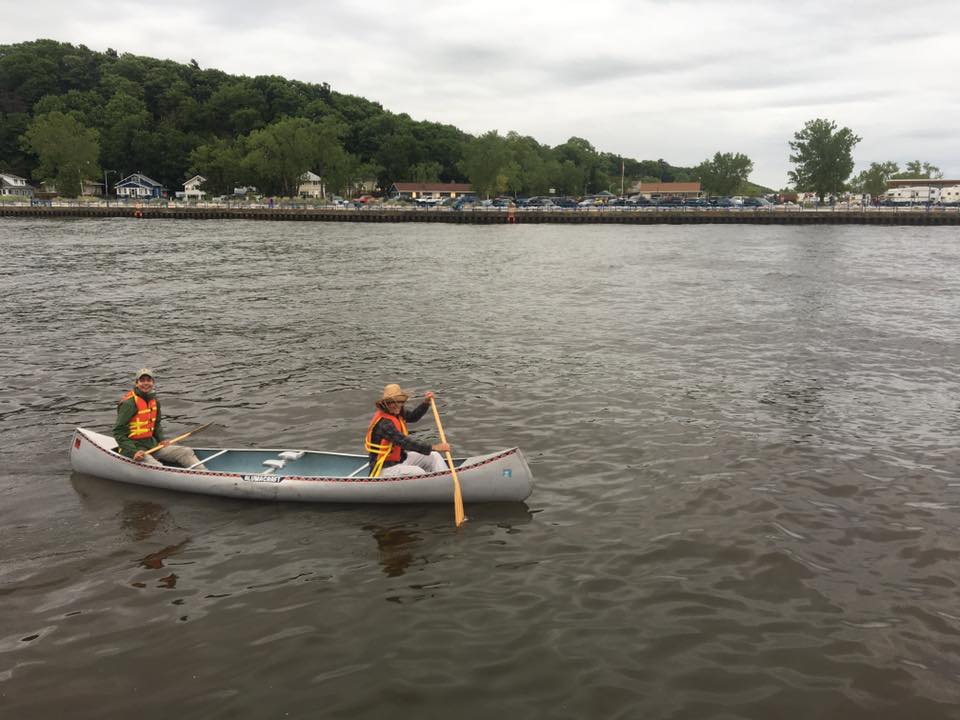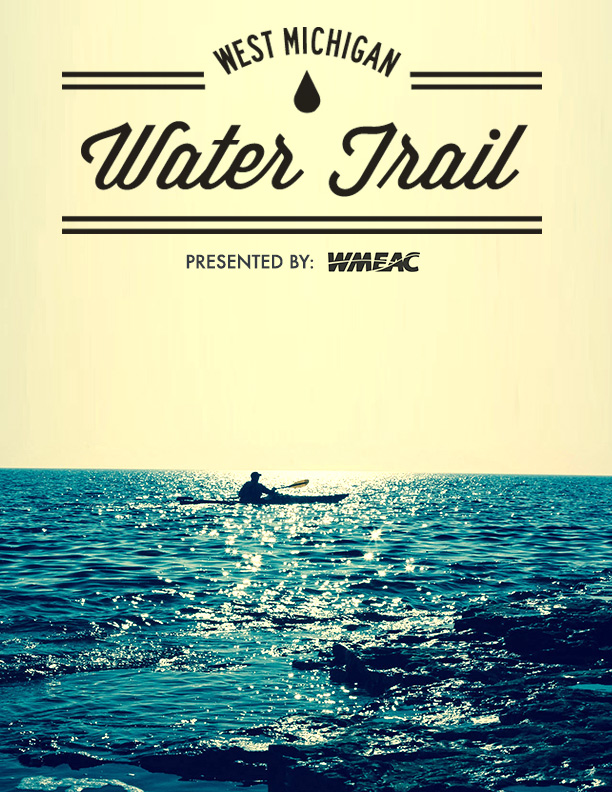Water Trails
What Are Water Trails?
Water trails are designated routes on navigable waterways such as rivers, lakes, and canals that are designed and implemented to foster an educational and recreational experience. They provide safe access to and information about waterways while also providing connections to cultural, historical, and other attractions. They are intended for non-motorized uses such as kayaks; other users depend on the character and conditions of each water trail. Water Trails contribute to local communities by stimulating local economies and expanding interest in the protection of these globally-unique freshwater resources.
There are existing trails at various locations on the Great Lakes, as well as on inland waterways in Michigan and neighboring states. Some of these are well established, such as the section of Lake Michigan near Sleeping Bear Dunes in Northwest Michigan and the Pictured Rocks area of Lake Superior in the Upper Peninsula, but others have insufficient access points, signage, and amenities.

West Michigan Water Trail
This research project was funded by the Michigan Department of Environmental Quality (DEQ) Coastal Zone Management Program. The West Michigan Water Trail initiative complemented a series of similar DEQ-funded projects occurring along the length of the Lake Michigan shoreline this year that will document inland and lakeshore assets for the water trail.
This project was unique in that it gathered information from a larger constituent, broadening the continuity of the water trails initiative to include inland sites such as lodging, camping, restaurants and convenience stores. In addition to mapping weather and climactic data, access locations, points of interest and other assets, this research project received input from the lakeshore communities. Input was vital in order to be able to develop the plan and gauge the level of community interest. Recognizing that watersports were not only communal and athletic but also commercial endeavors–that paddlers were also patrons–was vital to anticipating and monitoring the ripple effects of geo-tourism. This initiative illustrated the state of non-motorized activity in the Great Lakes and propelled management of ongoing use in a way that is environmentally and economically responsible.

